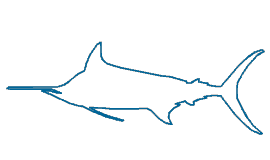I know where your coming from mate
We have kept diaries just on our fishing trips and use them alot then something will happen and blow all our thories and practical preformances to hell then we start to think to be there on the right day at the right times half the time LOL
But thats the main enjoyment of fishing i suppose if it was simple we would all be kept in fish
Cheers but top topic thou
JT







 Reply With Quote
Reply With Quote
 VHF CHANNEL 21
VHF CHANNEL 21






 Hi Fellows
Hi Fellows





